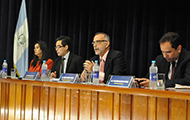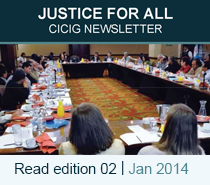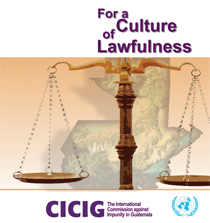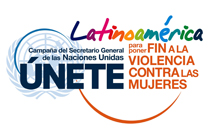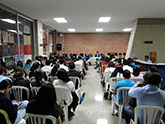 Guatemala, 12 June 2014. At an academic forum held at the Universidad Rafael Landívar (URL), Commissioner Iván Velásquez Gómez stressed that candidates for judgeships at the Supreme Court of Justice (SCJ) and the Court of Appeals should display suitability, capacity and honesty merits, in accordance with Article 113 of the Constitution of the Republic.
Guatemala, 12 June 2014. At an academic forum held at the Universidad Rafael Landívar (URL), Commissioner Iván Velásquez Gómez stressed that candidates for judgeships at the Supreme Court of Justice (SCJ) and the Court of Appeals should display suitability, capacity and honesty merits, in accordance with Article 113 of the Constitution of the Republic.
Also participating in the forum were Leonel Lira, a member of Congress who represents the Encuentro por Guatemala political party and president of the justice sector commission of Congress; lawyer Alfonso Carrillo Montiel; and Pedro Cruz (who acted as forum moderator). The activity was organized by the Asociación de Estudiantes de Derecho of the university.
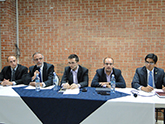 Carrillo Montiel, and his father Alfonso Carrillo Marroquín, filed a general partial action of unconstitutionality in relation to Article 12 of the Nominating Committees Act, which provides for, inter alia, the numerical grading of candidates to be public officials, based on ethical, academic, professional and human aspects. The CC provisionally suspended numerical evaluations, but maintained the use of grading tables.
Carrillo Montiel, and his father Alfonso Carrillo Marroquín, filed a general partial action of unconstitutionality in relation to Article 12 of the Nominating Committees Act, which provides for, inter alia, the numerical grading of candidates to be public officials, based on ethical, academic, professional and human aspects. The CC provisionally suspended numerical evaluations, but maintained the use of grading tables.
According to the lawyer Carrillo Montiel, Article 12 of the Nominating Committees Act violates Article 113 of the Constitution, which stipulates that Guatemalans have the right to apply for positions of public office, and that such appointments should be based on substantial grounds of capacity, suitability and honesty. Therefore, the lawyer said that these aspects should not be evaluated numerically.
Greatest merits
The Commissioner said that when appointing public officials for the justice sector, the most deserving individuals based on suitability, capacity and honesty merits should be selected, in accordance with Article 113 of the Constitution of the Republic.
He added that the aforementioned Article and Article 207 of the Constitution, which defines recognized honesty, should shape the actions of committee members when selecting candidates for Supreme Court of Justice or Court of Appeals judgeships.
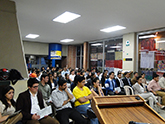 "There is a debate regarding Article 12 of the Nominating Committees Act, and the Constitutional Court decided to provisionally suspend numerical grading, while maintaining the use of grading tables. Therefore, the committee members should approve a non‑numerical grading table for candidates, and this table should be used as a base when they vote on candidate selection," he said.
"There is a debate regarding Article 12 of the Nominating Committees Act, and the Constitutional Court decided to provisionally suspend numerical grading, while maintaining the use of grading tables. Therefore, the committee members should approve a non‑numerical grading table for candidates, and this table should be used as a base when they vote on candidate selection," he said.
The Commissioner said that if there was going to be a grading table, it would have to establish an order. "For example, [there could be] a scale of A to E, with A being the best grade, and E the lowest, and each assessment criteria needed to establish which candidates have the strongest capacity, suitability and honesty merits should be subject to this alphabetical scale, and not a numerical scale," he explained.
He said that CICIG recently filed an amicus curiae (friend of the court) before the CC whereby it recommended, inter alia, that committee members should justify in a public, reasoned and clear manner why a candidate was selected or not, based on the analysis and evaluation of recognized honesty, capacity, suitability, and honesty merits.
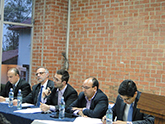 Legal vacuum
Legal vacuum
Member of Congress Leonel Lira was in favour of the numerical grading table, but also acknowledged that there was a vacuum in Article 12 of the Nominating Committees Act, because it did not stipulate that the grading should be binding.
According to the legislator, the aforementioned law should be amended because it had permitted the indiscriminate creation of universities and faculties as a means of obtaining positions on nominating committees, and many of which did not have a large number of students or graduates.
"If the table is eradicated, how will we determine merits? The table is not a bad thing, but the question of suitability of committee members should be improved," he said.
The activity ended with URL law students that attended the event asking the panel questions regarding the topics discussed.


